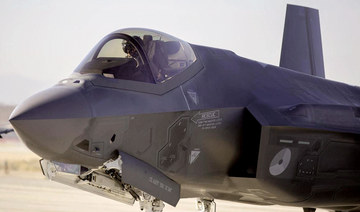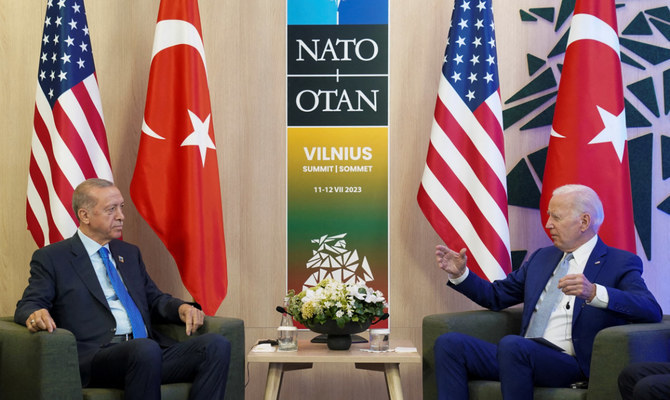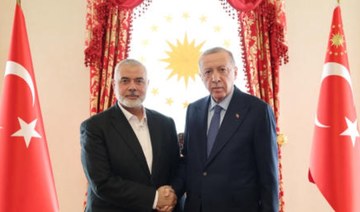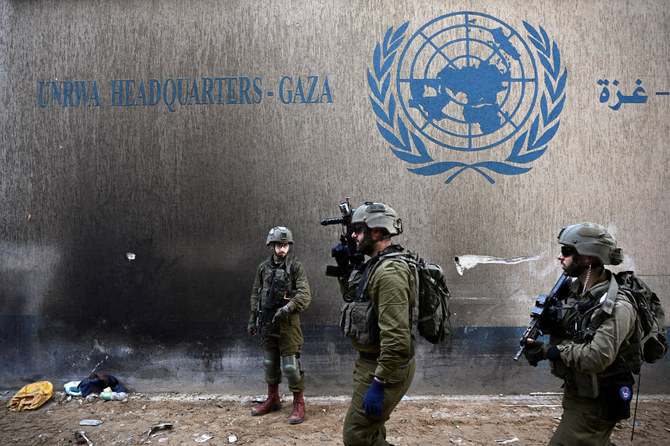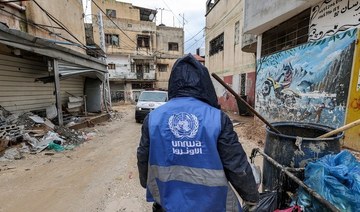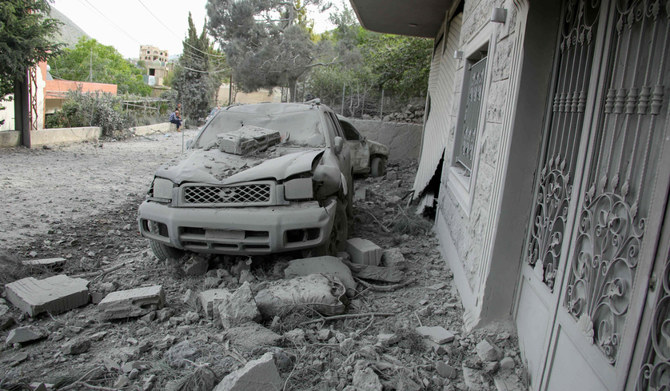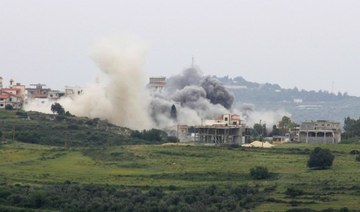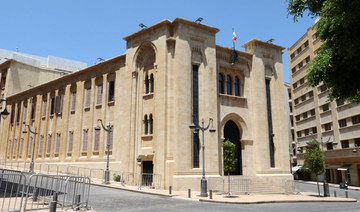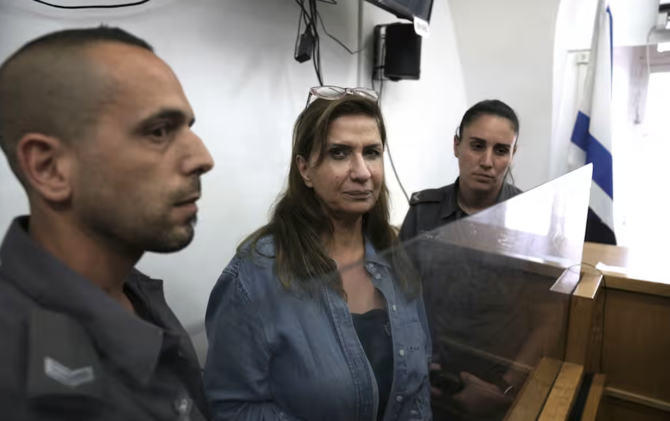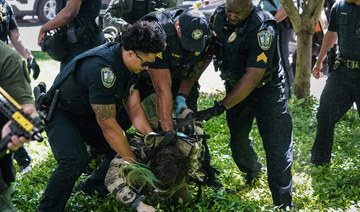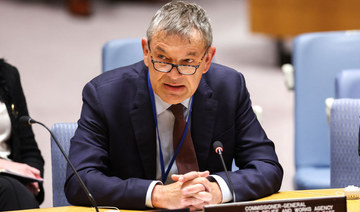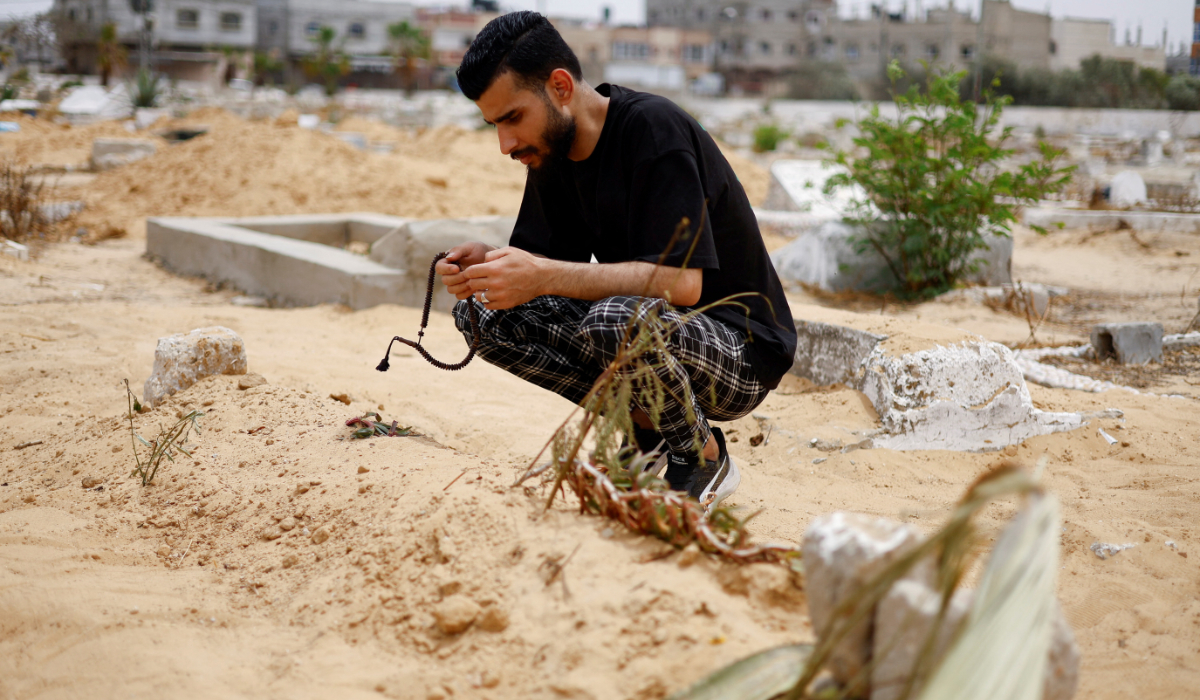ANKARA: A lobbying firm has been hired to push for Turkey’s reintegration into the US F-35 fighter jet program after being booted out of it for buying a Russian air defense system.
Ankara-based SSTEK is owned by the Presidency of Defense Industries (SSB), which is tasked with governing the country’s defense industry, and will pay $750,000 to Arnold & Porter for strategic advice to remain in the F-35 program and establish connections with the program’s US commercial partners and stakeholders.
Arnold & Porter has also pledged to “continually monitor export controls and trade sanctions that may be relevant and explain any said sanctions,” according to the firm’s filing notes.
The contract took effect on Feb. 1 and lasts for six months.
Turkey was kicked out of the program in July 2019 after its purchase of the Russian S-400 system, which the US said threatened NATO defenses.
Last December the US also hit SSB with sanctions under the Countering America’s Adversaries Through Sanctions Act because of its cooperation with Rosoboronexport, Russia’s main arms export entity.
Earlier this month Pentagon press secretary John Kirby made it clear that the US would not lift the F-35 ban on Turkey. “We urge Turkey not to retain the S-400 system,” he told a press briefing.
Being excluded from the program of prime contractor Lockheed Martin has meant an estimated $12 billion loss for Turkish defense firms, with some companies continuing to supply F-35 parts to Lockheed Martin until 2022 because of existing contract commitments.
“Despite having paid a serious fee on the F-35s, the F-35s still have not been given to us,” Turkish President Recep Tayyip Erdogan said on Jan. 15. “This is a serious wrong the United States did against us as a NATO ally.”
Analysts said the Arnold & Porter contract was symbolic of a wider problem linked to the perception of the Turkish government, warning that lobbying efforts could exercise an already angry US Congress.
Gonul Tol, director of the Turkey program at the Washington-based Middle East Institute, said the US position on the S-400 was clear and that bringing Turkey back into the F-35 fold would be problematic.
“The National Defense Authorization Act allows the US president to lift the sanctions imposed on Turkey for its purchase of the S-400 if Turkey removes the system from its territory,” she told Arab News. “Anything short of that will be met with skepticism in Washington. Lockheed Martin has found other countries to replace Turkey in the supply chain. If somehow Washington decides to reintroduce Turkey into the program, it will probably be treated as a new start.”
Karol Wasilewski, an analyst at the Warsaw-based Polish Institute of International Affairs, regarded the Arnold & Porter contract as another sign that Turkey was trying to find its way out of a pile of problems stemming from its S-400 acquisition.
“Yet, I seriously doubt this will be effective as the Americans – even under the Trump presidency – have been pretty clear on at least two issues: That the S-400 constitutes not only a political problem, but is also a technical threat and thus Turkey won’t get the F-35 as long as it sticks to the S-400, and that the US treats the S-400 on Turkish soil as a red line in relations with Turkey,” he told Arab News. “It seems that the Turks still have not fully processed the seriousness of the situation and thus still believe that half-measures will be enough. Turkey still sticks to the ‘eat a cake and have a cake’ paradigm and I doubt that the current US administration, which consists of people who have a really good understanding of Turkey, would buy this.”
Turkey recently offered up the “Crete model” in order to be invited back to the F-35 program, while also retaining the S-400.
It would store the system on non-Turkish and mutually agreeable territory in an inactivated state and use it when a threat was imminent.
Wasilewski said that while the Crete model may show a willingness to compromise, it was not enough to overcome the ongoing diplomatic and military impasse.
“Yet the problem is that both sides still seem to understand compromise differently. While the Turks suggest they may use the S-400 from time to time, the US is pretty clear. There is no chance for S-400 and F-35 coexistence on Turkish soil. The contract itself may be seen as another symbol of a false narrative generated mainly by pro-government circles that the S-400 was cheaper than the US Patriots.”
He added that the cost of the S-400 acquisition should be seen in a wider context, while the contract may be important to fully grasp the extent of current sanctions.
“The S-400 cost Turkey not only $2.5 billion (that) Turkey would pay to Russia, but also Turkey’s place in the F-35 program together with profits of Turkish companies involved in the project, problems in defense cooperation with the US and also Turkey’s credibility in the eyes of Western allies.”






